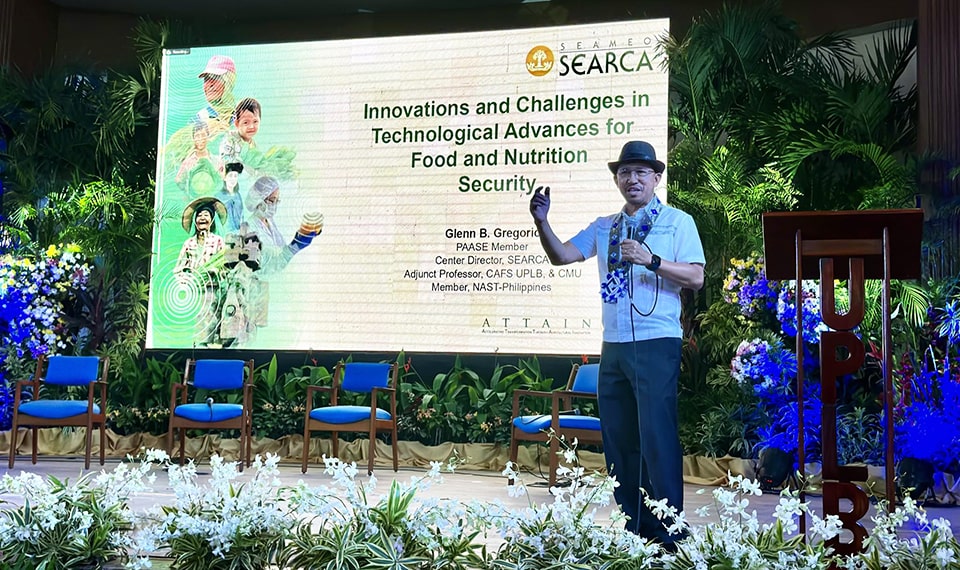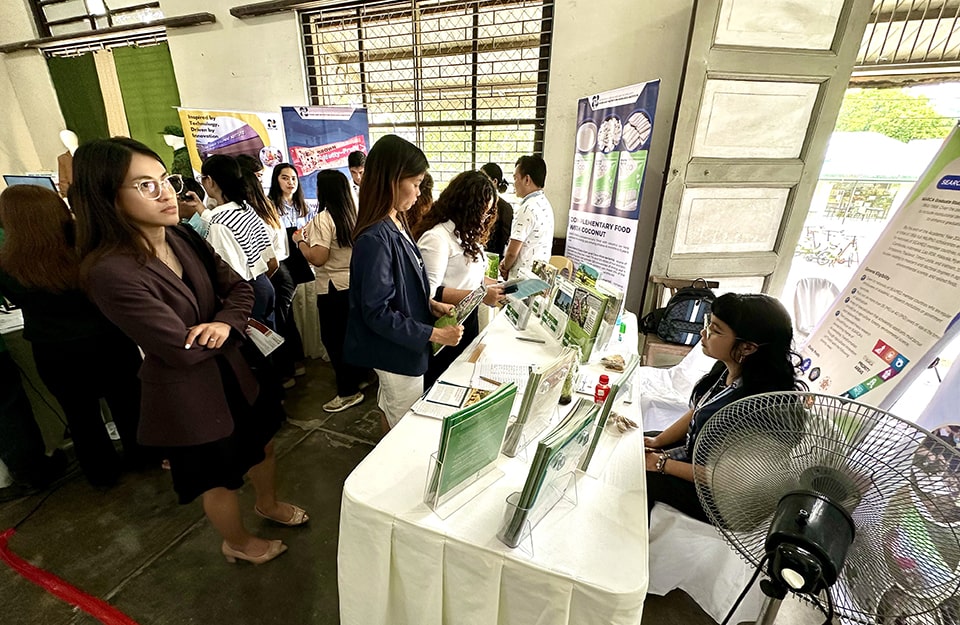LOS BAÑOS, Philippines—Southeast Asian Regional Center for Graduate Study and Research in Agriculture (SEARCA) Center Director Dr. Glenn Gregorio highlighted technological advances for food and nutrition security at the 44th Annual Philippine-American Academy of Science and Engineering (PAASE) Meeting and Symposium (APAMS), held on 15–16 July 2024 at the University of the Philippines Los Baños (UPLB) Baker Hall.

With the theme "Filipino Scientists Across Borders: Towards Developing Regional S&T Innovation Ecosystems," APAMS brings together leading scientists, engineers, and researchers from the Philippines and beyond, providing them with a platform to share their work, engage in discussions, and explore opportunities for collaboration. Running from 13 to 23 July 2024, it is held across four different Philippine state universities, namely, the University of Rizal System, UPLB, Batangas State University, and Eastern Visayas State University.
The UPLB leg zoomed in on technological innovations toward health, food, and nutrition security. In his plenary speech, Dr. Gregorio accentuated example of these latest innovations, including precision agriculture, vertical farming and controlled environment agriculture, gene editing, blockchain and food traceability, and climate resilience-focused technologies. While recognizing the benefits of these advancements, he also addressed the potential challenges they may pose.
"With the use of these technologies, several challenges, including access to technology for smallholder farmers, regulatory issues, cybersecurity risks, and ethical concerns persist," Dr. Gregorio said.
He then introduced SEARCA's Emerging Innovation for Growth Department, its lead arm dedicated to providing farmers and farming families wider access to innovative products and services through open innovation and agri-incubation; knowledge and technology transfer; and project development, monitoring, and evaluation. He cited several EIGD initiatives focused on health, food, and nutrition security. One of which is the Food is Life Exemplified Promoting Planetary Health Diet (FLExPHD) competition, which fostered the development of mobile applications to help consumers make informed food choices based on nutritional needs, health benefits, and the environmental impact of food production. Another initiative is the Innovation Olympics 2.0, an agri hackathon, wherein young innovators developed solutions to the challenges faced by urban and rural vegetable farmers. Moreover, he also presented the Grants for Research towards Agricultural Innovative Solutions (GRAINS), which provides starter funds to researchers, scientists, inventors, and agripreneurs to scale up their technology or innovation model.
Dr. Gregorio also underscored SEARCA initiatives involving community participation, some of which are the Upgrading the Calamansi Value Chain towards Improving the Calamansi Industry of Oriental Mindoro project, Rice Straw Biogas Hub project, and the Web-based Integrated Spatial Engine and Smart Ecosystem (WISE) Carbon Farming project.
The conference was graced by other distinguished guests and speakers, including Dr. Renato Solidum, Jr., Secretary of the Philippine Department of Science and Technology; Dr. Teodoro Herbosa, Jr., Secretary of the Philippine Department of Health; Dr. Jose Camacho, Jr., Chancellor of UPLB; and national scientists Dr. Carmencita Padilla and Dr. Lourdes Cruz.
SEARCA, through its Partnerships Unit, hosted an institutional exhibit at the conference highlighting its publications on food security, climate resilience, and natural resource management, as well as information materials on its programs and services.
